Legal Update, February 2023
A New Era of Conundrums: Contracting with Related Pharmacies to Prepare for Gene Therapy
by Elizabeth (Issie) Karan and Michael B. Glomb, Legal Counsels
With the dawn of gene therapy, the Hemophilia Alliance is fielding more questions from member Hemophilia Treatment Centers (HTCs) about options for collaborating with in-house and/or institution pharmacies. More specifically, some HTCs have asked what is required, and what is appropriate, in terms of the 340B Program and federal grants compliance.
The Office of Pharmacy Affairs (OPA) allows a covered entity to list an in-house/institution pharmacy as a “shipping address.” However, OPA requires that a covered entity wishing to work with a pharmacy, which is a separate legal entity from such covered entity, have in place a compliant contract pharmacy agreement and list such pharmacy on its registration prior to 340B purchased drugs being dispensed to patients at such pharmacy. Therefore, an HTC with a related in-house/institution pharmacy, which is equipped to store and administer a gene therapy product, may wish to add them as a shipping address on the OPA Information System (OPAIS). Please note that an institutional pharmacy, which is not co-located with the HTC but is part of the same legal entity as the HTC, likely constitutes an in-house pharmacy and be eligible to be a shipping address of the HTC on OPAIS.
Apexus FAQ ID: 1184 states the following:
“Q: How must we register our in-house pharmacy that is a separate legal entity under our 340B covered entity?
A: An in-house pharmacy is not eligible to register as a child site. The in-house pharmacy could be listed as a shipping address. If the covered entity has a contract with the in-house pharmacy because it is a separate legal entity, then it must be registered as a contract pharmacy and may not dispense any 340B drugs until a written contract is in place and the pharmacy is listed as a contract pharmacy for the covered entity on 340B OPAIS.”
Regardless of whether an in-house/institution or contract pharmacy serves HTC patients, the Uniform Grants Guidance still applies to any revenue generated from that arrangement. As we often highlight, the definition of program income states that program income includes “gross income earned by the non-Federal entity that is directly generated by a supported activity or earned as a result of the Federal award during the period of performance.” (See 45 CFR Section 75.2.) Program income rules apply to an HTC, and its institution, regardless of whether it purchases products using its eligibility as an HTC grantee or not. In 2003, the Maternal and Child Health Bureau sent a letter to Officials of the Hemophilia Diagnostic and Treatment Center Regional Projects Grantee Institutions stating that, “MCHB requires the HTC grantee and their affiliate institutions to use program income to further eligible project and program objectives.” In the 2005 Hemophilia Treatment Center Manual for Participating in the Drug Pricing Program Established by Section 340B of the Public Health Service Act, the MCHB reiterated this requirement, stating:
“revenue, whether or not the HTC is a 340B covered entity, is program income and subject to the rules for that kind of income in the grant regulation and the policy statement. The rules apply to both HTC regional grantees and their affiliates.”
Additionally, the most recent Regional Hemophilia Network Funding Opportunity (Number: HRSA-22-068) states that:
“The program income must be used for the purposes and under the conditions of the federal award.” Recipients are to add program income revenue to the funds committed to the project or program to “further eligible project and program objectives.” More specifically, reportable net program income is to be used for patient health, education, and supportive services necessary to provide comprehensive care to patients with hemophilia or related clotting and bleeding disorders served by the HTCs. Any proposed use of program income must be submitted to HRSA for Prior Approval through HRSA’s Electronic Handbooks (EHBs).”
Taken together, this guidance means that HTCs can collaborate with their in-house/institution pharmacies in the provision of gene therapy to their patients. However, revenue generated from those services must still be treated as program income.
Also in this Issue…
Notes from Joe
· Stepping Up Our Game
Alliance Update
· Update on Alliance Meetings for 2023!
· Pharmacist CE Conference 2023 Summary
Washington Update
· HELP Copays Act Reintroduced
Payer Update
· Call the Alliance Bat Phone!

Comments are closed.